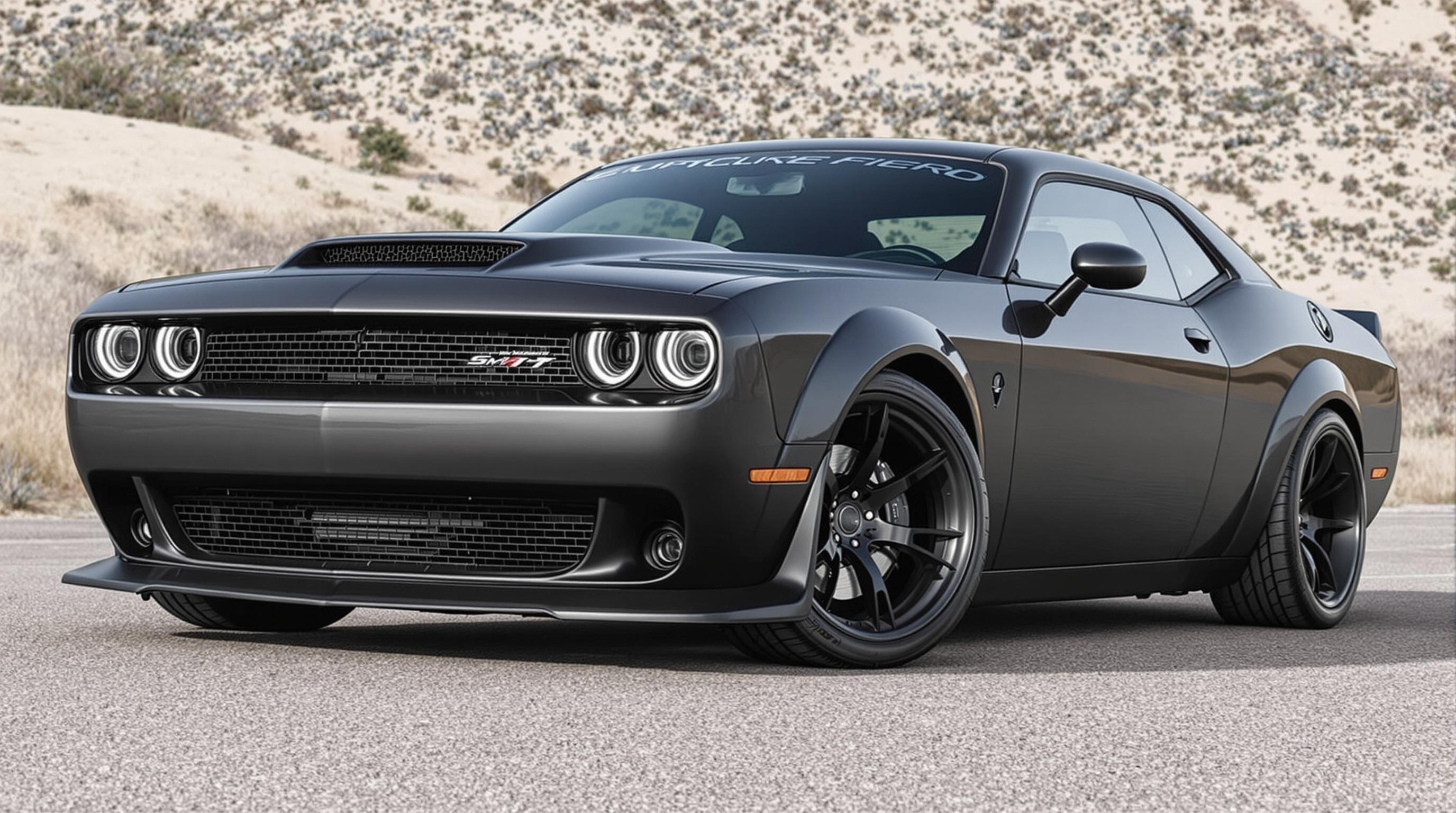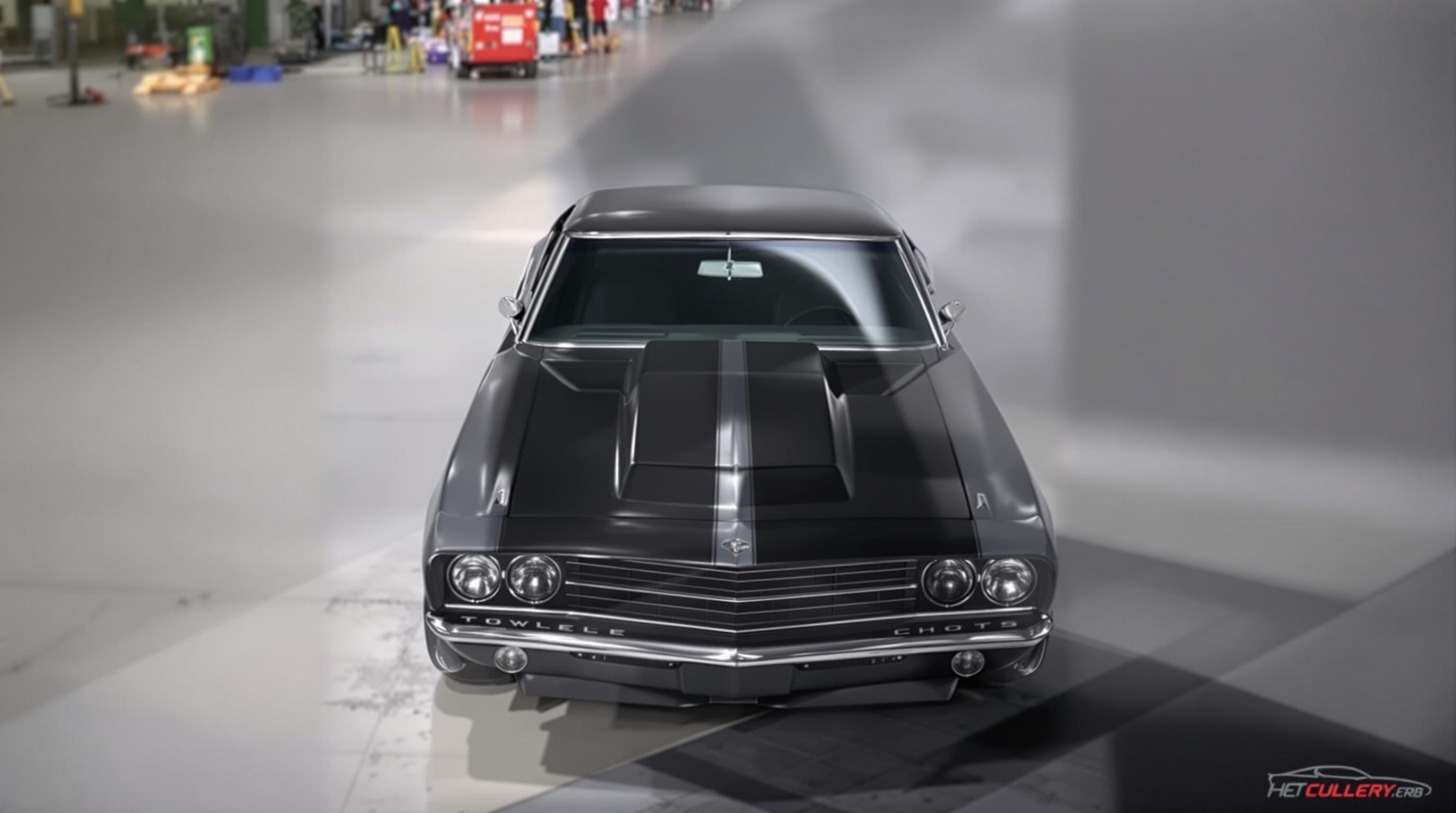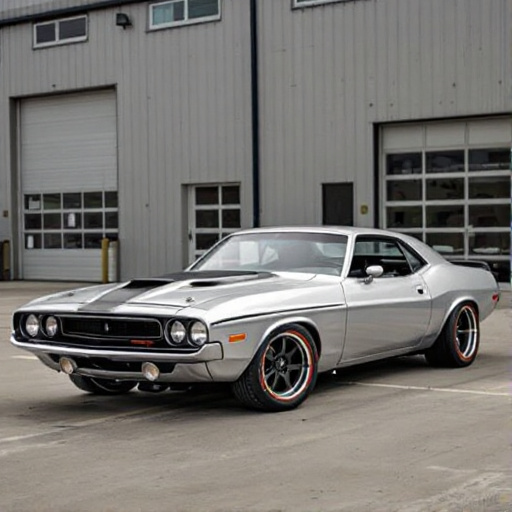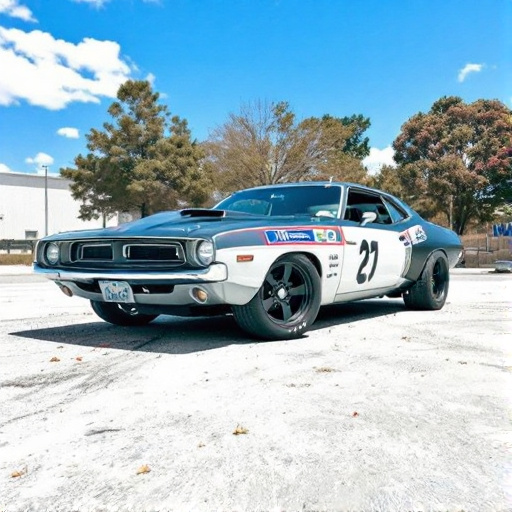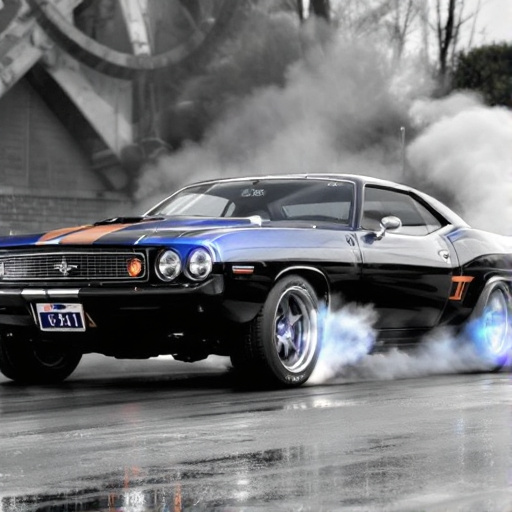Featured Articles
- Reviving the Roar: How Electric Conversions Are Changing the Fate of Classic American Muscle Cars
- Revving Up Nostalgia: How American Muscle Cars Shaped 70s Subculture and Today's Retro Trends
- Revving Up Nostalgia: The Revival of Classic Muscle Car Culture Among Gen Z Enthusiasts
- Revving Up Nostalgia: The Surprising Resurgence of Muscle Cars in Eco-Friendly Customizations
- Revving Up Nostalgia: The Surprising Rise of Vintage Muscle Car Restoration in the Electric Era
Revving Up Nostalgia: How American Muscle Cars Shaped 70s Subculture and Today's Retro Trends
Revving Up Nostalgia: How American Muscle Cars Shaped 70s Subculture and Today's Retro Trends
The muscle car phenomenon of the 1970s encapsulated an era of rebellion and individuality that continues to influence today's retro trends. This article delves into how these iconic vehicles shaped the subculture of the '70s and highlights their enduring impact on modern society, nostalgia, and pop culture.
The Birth of American Muscle Cars
The American muscle car was born in the post-World War II era, but it truly came of age in the flamboyant '60s and 70s. Cars like the Ford Mustang, Chevrolet Camaro, and Dodge Charger cornered the market, luring in young drivers with their raw power and sculpted designs. The Mustang was introduced in 1964 and became an instant classic; in fact, it sold over 418,000 units in its first year alone (Car and Driver, 2023). As burgeoning pop culture intersected with a desire for speed and style, these cars became symbols of freedom and rebellion.
A Ride Through the 70s Subculture
The 1970s was a unique decade driven by changes in culture, music, fashion, and politics, marked by a profound sense of youthful disillusionment. Amid the backdrop of Vietnam protests and the Watergate scandal, American youth found solace in the roar of a muscle car engine, the wind in their hair, and the promise of adventure. Drive-ins, car shows, and mechanic garages became social hubs for those yearning to break free from conformity.
Statistics on Muscle Car Appeal
Surveys conducted by Harris Poll in 2018 revealed that 40% of Americans aged 18–34 have a romantic fondness for vintage muscle cars, associating them with freedom, adventure, and nostalgia (Harris Poll, 2018). This sense of longing isn’t confined to younger generations; numerous individuals between the ages of 50 and 70 view muscle cars as icons of their youth, validating the notion of nostalgia cutting across generational lines.
Muscle Cars and Pop Culture Phenomena
Perhaps one of the most notable examples of muscle cars merging with popular culture is the iconic film "Bullitt" (1968), starring Steve McQueen. The unforgettable chase scene featuring a green Ford Mustang Fastback not only cemented the Mustang’s status but also set a standard for action films in general. This was not just a film; it was an experience, and those car chases became a vital piece of 70s pop culture.
Even television played a role in glorifying the car culture of the era. The TV series "Knight Rider," which aired in the early 1980s, glamorized the relationship between man and machine, featuring the advanced talking car KITT, based on a modified Pontiac Trans Am—a true muscle car in its own right. The car's sleek design and capabilities continued the dream that muscle cars weren't just vehicles; they were extensions of one's identity.
The DIY Spirit of Muscle Car Culture
Many enthusiasts embraced a DIY (do-it-yourself) mentality, turning garages into sanctuaries of creativity. Think about it: joint weekend projects to customize engines and paint jobs were not just hobbies; they were bonding experiences that shaped friendships and communities. Need proof? Look no further than the "Muscle Car Chronicles," an annual convention that celebrates this spirit, consistently drawing in thousands of enthusiasts year after year.
Revamped Trends: From the Past to Present
Fast forward to today, and the impact of muscle cars is unmistakable. From exhibitions to vintage shows, there’s a continuous revival of interest in American muscle cars. In fact, the classic car market has seen a resurgence, with muscle car sales increasing by over 35% in the last decade (Hagerty, 2023). The appeal of these cars is interwoven with the retro trends that dominate today’s fashion and design landscapes. Young TikTok influencers post meticulously curated videos showcasing restored muscle cars, proving that this love affair isn't limited to those who were around in the '70s.
Case Study: The Return of the Ford Bronco
One notable revival is the return of the Ford Bronco. Initially launched in 1966, the Bronco became a cult favorite as a rugged vehicle embodying off-road freedom. Its reintroduction in 2020 has captivated both nostalgic vets and a new generation of adventure-seekers. A recent survey showed that 60% of current buyers were under the age of 35, highlighting a reconnection with the retro style of muscle cars with a modern twist (Ford, 2023).
The Emotional Resonance of Muscle Cars
Nostalgia is powerful—it's an emotional fuel that drives the desire for products and experiences that connect us to our past. A 2019 study from the Journal of Consumer Research found that individuals who embrace nostalgia often feel more connected to their identity and past experiences, which may explain the ongoing popularity of muscle cars. They serve not only as a reminder of a simpler time but also as symbols of resilience, free-spiritedness, and camaraderie.
Fueling Modern Creativity
Numerous artists, musicians, and filmmakers today draw inspiration from the muscle car culture of the '70s. An excellent example is Greta Van Fleet, a rock band that evokes classic rock sounds reminiscent of the past, often paying homage to the muscle car aesthetic in their music videos. Their popularity showcases a trend where younger generations borrow from older styles, creating a beautiful collage of the past and present.
The Shift in Automotive Culture
Despite the shift towards electric vehicles and a more eco-conscious automotive culture, the muscle car community remains steadfastly devoted to preserving the essence of these iconic machines. Online forums like the “American Muscle Cars Community” on Reddit connect enthusiasts around the globe, allowing them to share stories, tips, and photos. The love for muscle cars has become a digital age phenomenon, bridging the generational gap, proving that the spirit of the ’70s is alive and kicking.
Your Chance to Join the Community
If you’re feeling drawn to this exhilarating world of non-stop horsepower and rich history, consider immersing yourself in the subculture. Attending car shows, joining local clubs, or simply taking a classic car for a spin can not only connect you with likeminded enthusiasts but may also reignite your appreciation for the most iconic vehicles of American history.
Conclusion: A Legacy That Roars On
As we rev up nostalgia, the significance of American muscle cars extends far beyond their chrome and horsepower. They embody a lifestyle, a rebellion, and an irresistible charm that still resonates with various generations today. From the roaring engines that powered the '70s subculture to their resurgence in today's retro trends, muscle cars will always hold a special place in the hearts of many. So next time you see one on the road, roll down the window, and let the roar remind you of the unyielding spirit that prevails in these classic machines.
